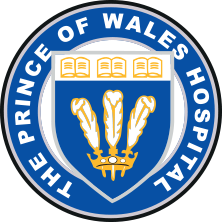The day of your surgery
Fasting means not eating food or drinking fluids before surgery. It is important to follow the instructions the hospital gives you so that you do not inhale food or fluids into your lungs during surgery.
Follow these instructions on fasting before your surgery to stay safe during your procedure.
You can brush your teeth while fasting but avoid swallowing toothpaste.
Follow the instructions that the nurses and doctors have provided about which medicines to take or withhold on the morning of your surgery. While you are fully fasting it is still ok to have the medicines that you’ve been told to take with a small sip of water only, just enough to swallow them down.
Please bring:
- Medicines you are taking and an up-to-date medicine list if you have one
- Any breathing machine that you have been recommended to use such as a CPAP or BiPAP machines
- Any test results, X-rays or reports relating to your current medical condition
- Current Medicare card or Veteran Affairs card
- Health Care card, Pensioner Concession card or Commonwealth Seniors Health Care card
- Insurer details (eg workers compensation, public liability or third party)
- Your private health fund membership card if you are currently insured with a private health fund
- If you are staying overnight, please bring sleepwear, toiletries, and medicines
- Reading material and/or a device charger for while you wait
- Please remove nail polish and shellac.
- You are welcome to bring a relative or friend with you. Please do not bring children.
- Patients with beards who are having neurosurgery, including spine surgery, or airway (windpipe/trachea) surgery are strongly recommended to be cleanshaven. If uncertain, please ask.
Please do not bring jewellery including body piercings, valuables, or large amounts of money. The hospital cannot accept responsibility for loss or damage to your property.
For advice on arrival times, see our webpage 'The day before your surgery.'
Most patients having planned elective surgery are asked to come to our Admissions Department and Perioperative Unit. These are located on Level 1 of the Dickinson Building (building 15 on the campus map). Read this information on how to find your way around our hospital.
In the Admissions Department we will go through the paperwork with you, then our Perioperative Unit staff will prepare you for your surgery.
If you are going home the same day, and also typically if you are staying one night, you will return to the Perioperative Unit after your surgery, before going home. If you are staying longer than one night, you will most likely be transferred to one of our surgical wards after your surgery.
If you are coming for a day only urology, endoscopy, dialysis or radiology procedure or if you are coming to Eastern Heart Clinic you might not come through the Admissions Department and Perioperative Unit, but present to these specific units instead. Please refer to information from these departments.
You will meet your anaesthetist on the day of your surgery. They will assess your health and discuss the procedure and anaesthetic with you. You may have already discussed this if you were advised to attend the Anaesthetic Pre-Evaluation Clinic (APEC) before your surgery.
There are different types of anaesthetic. The type you receive depends on the procedure you are having and your health.
- A general anaesthetic is where you are fully unconscious and unaware while the procedure takes place.
- A regional anaesthetic is where we numb the area of your body undergoing the procedure e.g. arm or leg. We may also give you sedation medicine to help you feel comfortable and relaxed (but not fully asleep).
- A local anaesthetic maybe be used for some procedures that are for only a very small part of the body. Like regional anaesthetics, we may or may not also give you sedation medicine.
Learn more about anaesthesia from this website.
Your surgeon and anaesthetist will be able to give you an estimate of the length of time your operation will take.
Your support person can wait for you in the Perioperative Unit waiting room. Often it is a very long wait because you must also stay in recovery for some time after your surgery. We recommend your support person leave the Perioperative Unit while you are having your surgery. The hospital has some cafeterias, and quiet outdoor spaces on site. There are also plenty of eateries and parks nearby the hospital.
Your support person can call the Perioperative Unit for updates on 02 9382 3842 or 02 9382 3847.
